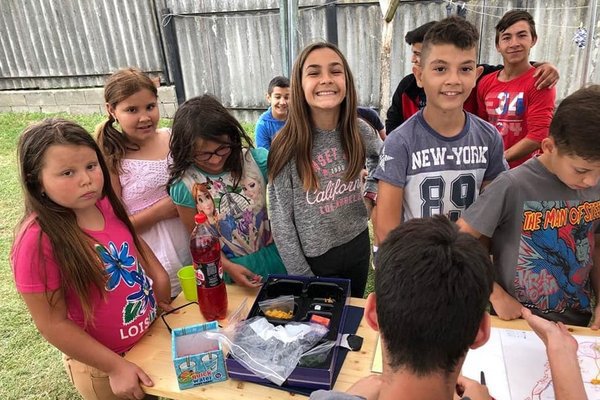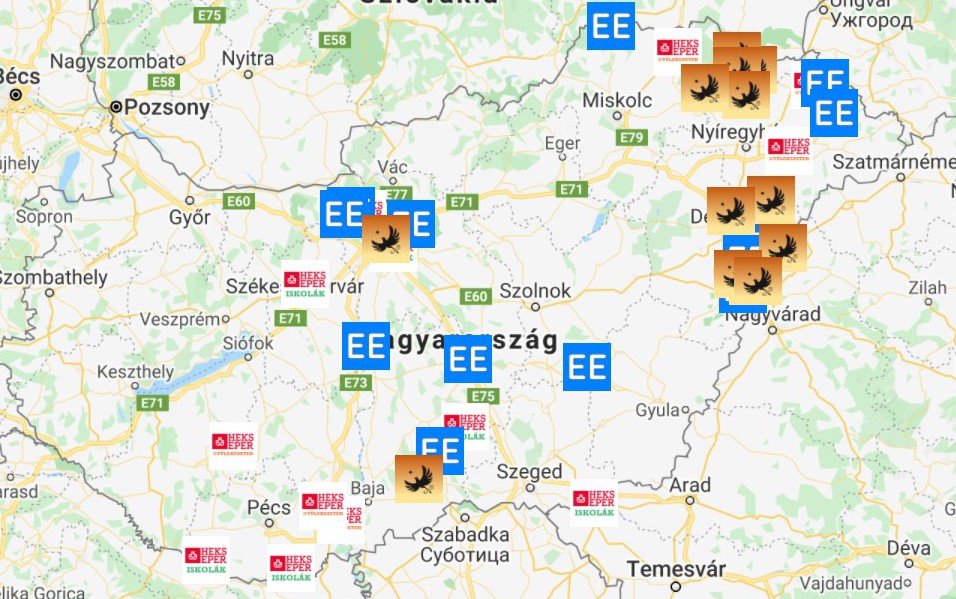HEKS, the Aid Organization of the Swiss Protestant Churches has been supporting RCH’s roma ministry since 2013. Joint projects in awarness raising, training and inclusion programs supporting Roma youth and families one of the two priorities of the Church Cooperation between HEKS and RCH, beside integration of Refugees. The current project period started in 2017 and ends this year. The new 4 years period in the framework of the so called Country Program will start on the 1st of January 2021. One of the primary goals is to encourage the congregations of RCH to be more open towards roma communities and to support the ministry among Roma families, children and youth in various ways.

In addition to the financial support, HEKS also cooperates with the National Roma Ministry of RCH, providing continuous guidance and co-organizing trainings for the participating congregations. Only congregations of RCH and their projects can apply, as active contribution is required throughout the program.
The aim is to strengthen the Church and its congregations in integrating Roma into Church and society by creating empowering structures and inclusion. Congregations provide educational, life skills, cultural and spiritual programs for disadvantaged families, children, and youth. The project's objective is also to sensitize non-Roma and involve them in activities that support Roma people and help the cooperation of the two ethnicities. Additionally, reformed schools are supported in developing an action plan to promote the inclusion of children from educationally disadvantaged families in mainstream classes. The teachers are trained on integrative school concepts and teaching methods. To share the school’s experiences in inclusive education, teachers of participating schools take a mentoring role to support new participating schools on their way towards inclusive education.
The project includes structure and capacity building, community building and development programs and support for Roma children. Congregations only can apply with the support of their Church District and obligations are kept in a contract, including the commitment to contribute to the workshops and acitively participate in mentoring offered by HEKS. Community building is fostered through trainings in the framework of workshops and programs involving both Roma and non-roma people.
Support offered to Roma children includes improving social skills, developing personality and strengthen identity and self-confidence. Based on Christian values, the children also get religious education and participate in camps and playgroups. There are three options within the support for children: 1. afterschool (tanoda) for children of school-age; 2. Support for children under the school-age, 0-6 years old; 3. mentoring for Roma girls.
In afterschool (tanoda) projects, disadvantaged Roma children and Roma young people are supported by teams of skilled professionals and volunteers in their studies and career development with the involvement of the local schools and families. The afterschool focuses on individual counselling and career orientations for Roma children and youth and involves the parents through frequent family visits and parents’ meetings.

The basic requirements and criteria for congregations are based on several aspects, such as: region, sources available for the congregation, cooperation of members and various institutions in the area, including schools, social institutions, government agencies and non-profit organizations.
One of the priorities of the programs supported by HEKS and RCH is sustainability. All the activities and results of the given project period shall be fruitful for future programs and serve as best practices. Equipment and accessories are meant to be used in the future activities of the congregation.
Congregations can apply from all the regions of Hungary, where the Roma population is above 5%, however regions with higher percentage of Roma population are prioritized.